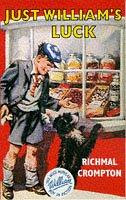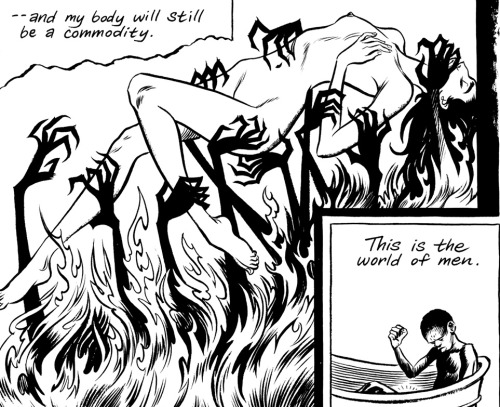The Revelations - Alex Preston
'into that silence'
Sometimes timing can make a crucial difference to what you read or how it resonates when you do. Alex Preston has been rather unfortunate on two occasions now. His debut novel, This Bleeding City, may well have been written with a timely prescience, being published as the financial crisis really took hold and dealing with the human consequences of boom and bust, but I had just read Adam Haslett's superb Union Atlantic and so wasn't tempted into reading another novel on a similar topic. I was determined not to miss his follow up though, a look at four members of a very modern kind of church and an examination of faith, sex, money and friendship and was very pleased to get my hands on an early proof. The only problem this time was that I happened to read it just after Samantha Harvey's All Is Song, another novel of faith which made a huge impression on me as you'll know if you read my thoughts earlier this month. Perhaps because Preston's novel seems to deal with religion much more head-on it means that it read like a novel written about a topic rather than a novel that manages to incorporate its topic and themes so that you don't realise until the end that it was about so much. This is an incredibly harsh criticism of a really engaging novel and only comes because Harvey's novel made such an impression just before reading this one.
Preston takes a group of friends and shows how the seemingly strong bonds between them can become fragile on closer inspection and that timing here too can have a massive impact on the way our friendships and relationships develop. Marcus, Abby, Mouse and Lee all became friends around university, forming the four person band that gives the novel its title. When the novel begins Marcus and Abby are married and trying for a baby. This process is fraught with stress and worry, Abby having previously miscarried, and Preston's description of their technical lovemaking isn't a candidate for the Bad Sex Award but an excruciating depiction of bad sex with only the end result in mind. The four friends are all part of a burgeoning church which runs something called the Course (naturally we think immediately of the Alpha Course). Overseen by charismatic minister David Nightingale, backed by a wealthy investor known only as the Earl, this is a church to attract the young, the wealthy, the good-looking, the successful; a church that offers as much in networking opportunities as it does in spiritual succour and companionship. This is something of a tipping point for the church who are on the verge of expansion into the huge American market (and yes, that kind of language gives you an idea of the church's priorities) and for the four friends as well who are all acting as course leaders for the first time this year with responsibilities to convert as many of their initial groups as possible.
Pressure is evident everywhere in this novel. Marcus and Abby have their worries about conception, Mouse clearly has an unrequited love for Lee who is battling her own personal demon: promiscuity. All four feel the pressure that comes from Nightingale and the need to convert as many of their charges as possible even the strongest unbeliever ('If they have thought hard enough about faith to have strong feelings in the opposite direction, then they have opened a small gap which will let God in'), a pressure that is expertly described by Preston in the friendly hand on the shoulder that becomes the painful pressure of a thumb pressing down on a collar bone. It is no wonder that the first meeting with the new course attendees becomes something of a boozy-do where Marcus drinks too much (again), Lee wakes the next morning to find one of them in her bed, and Abby suffers loss yet again. These pressures only grow as the novel develops and the bonds that hold these four friends together aren't up to the strain.
When writing about religion and faith how important is it to offer a rounded vision? I ask this because whilst at first it seems that Preston is keen to show both sides including the comfort, support and direction that comes from being part of a religious group it gradually becomes clear that the novel is clearly facing in one direction. Why for example did the friends join the Course initially?
Marcus had started coming to the Course because of Abby. She had made it clear that it was the only way she'd stay with him, and he attended at first in the same way that he'd gone piano lessons as a child...Only slowly did he realise that the church might offer a means of negotiating the fear that shot its bright splinters across his mind whenever he thought of death. In the quiet ritual, the music and, above all, the promise of an existence beyond the grave, Marcus found peace.
Mouse too started attending because of a woman, Lee, and because it captured something of his feeling that all was not right with the world ('Life just seems...it seems unfair at a very deep level. Not just the inequalities in society, but the way that the most successful people also seem to be the most awful.'). Lee as I've mentioned is constantly battling her own personal demons and the Course offered not only the moral imperative she needed to stop finding solace in her brief trysts but also the meditative silence she required. That silence however has slowly become as oppressive as the chaos that came before it.
'Sometimes silence makes things better; sometimes it's where I feel most trapped. Because the most awful things can creep into that silence...this voice starts speaking to me...this voice is very critical, totally unforgiving. It tells me not to be such a goddamn idiot, that it's all my fault, that I need to pull myself together. And it's not my dad's voice, and it's not my mother's. But it's there and it's making me very unhappy.'
There is always the sense that these people only 'believe' because they have to or because it is beneficial. The weakness of the apparently steadfast Nightingale will become evident later and the fraudulence of the Earl should be obvious from his moniker. Combined with the plot itself all of this means that this novel is less an examination of faith than its absence. The corrupting influences prove to be too strong but the most interesting of these in many ways is the glue that holds these friends together. By looking back to the time when they first became friends we see the different motivations to friendship and how thin the line is between one kind of relationship and another. This very human and earthly kind of love is far more fascinating than its spiritual counterpart and Preston brilliantly depicts the complexity of our closest friendships and the jeopardy they might be in with the smallest shift in their make-up.
He is also rather good with the physical geography of the novel. I was reminded of my recent Sebaldian experience with Austerlitz and its use of architecture and place to show character and develop themes. The grand house of the Earl for example is not only dressed with old photographs to help maintain the illusion of his bought title but always in the background is the noise of the nearby motorway, there to remind us that this is not quite the rural retreat it appears to be. There is also the Senate House Library at University College London.
The library had originally been designed to be much larger, with a second tower rising up towards the Euston Road to give the impression of a vast modernist steamship cruising through Bloomsbury. The project had run into financial problems and the building was cut off parallel with the northern edge of Russell Square. Because of the untimely foreshortening of the architect's vision, there were corridors that led nowhere, warrens of narrow passages that culminated in brick walls, rooms with no purpose whose air was never disturbed by human breath. These orphaned spaces were Mouse's realm: it was here that he spent his days, here that he felt at home.
Preston also occasionally locates an image which is not only well-observed but telling. Londoners and those that visit the capital will be used, I'm sure, to seeing rain pelting down on the Thames, or as he sees it:
The rain was falling so hard it was as if the river was trying to reach up to the clouds.
Marcus, Abby, Mouse and Lee would all like to be able to transcend their earthly confines, to be better people, but each of them finds it as hard to achieve that reverse trajectory as each raindrop that falls on the river. Any suggestion that they might be moving upwards is as much an illusion as the image above. Read more...




















